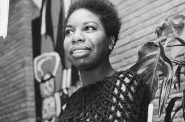Fincher
On the advice of my friend Max Lawton I have been revisiting the films of David Fincher. When I first viewed these films, I did not like them. I found Fight Club to be too belligerent and Seven to be over-the-top and Gothically dark. The Game, as I remembered it, played too much with reality too much and facility and not enough truth. The filmmaking is obviously very skillful, but the morality is heavy-handed. And Zodiac , though it had great set pieces and some nice performances, was long, choppy and lost the continuity it needed to make a cohesive whole. I still haven’t seen Benjamin Button.
I think perhaps there is a sense of humor behind Fight Club that I didn’t understand the first time through. But if it is intended as humor then it is almost obliterated by the testosterone and the brutality of many of the images. The idea of men going into parking lots and basements and beating each other senseless, learning to love each other through this violent intimacy, is a wonderfully over the top and humorous comment on the Robert Bly “Iron John” movement of the 1990s.
The absolutely necessary feminist movement that brought women out of their closets and kitchens and encouraged them to form significant relationships with each other and to demand a share in our economy and social organization naturally precluded men, who felt left behind and out of the dialogue. The power – or more accurately, the presumption of power – that men wielded for centuries was felt to be slipping away, and they flailed about in what will be, hopefully, the last death throes of white male supremacy, we waged a few stupidly motivated wars, like Grenada and the two Iraq wars, the embrace of greed as a goddess, and some bizarrely adolescent behavior as witnessed in the White House over the past eight years.
If Fincher and Chuck Palahniuk, the man who wrote the novel Fight Club, are commenting on this situation, then I don’t think they have gained enough distance to see it clearly – certainly not Fincher, anyway. A big part of him is still down in the basement whimpering in the corner, with blood on his lip, fantasizing about the next time he comes up against that bad man who beat him up. Or maybe it was a woman he had to negotiate with.
When Fight Club really does become comedic is near the end when the anarchy that Tyler Durden (Brad Pitt) preaches becomes an organization of men without lives or roots running around making explosives in the semi-abandoned house that they call home. It reminds me of the cockroaches in an old episode of “Fairly Odd Parents,” the Saturday morning cartoon, where the cockroaches set about to attain “world domination” and are nearly successful. I know Cosmo, Wanda, Jimmy and the cockroaches are funny but I am not sure if it is intended as comedy with Fincher.
When I say that Fincher’s style is heavy handed and moralistic it’s because characters like Tyler Durden appear to be little more than mouthpieces for a specific moral outlook. The fact that Durden espouses an anarchic approach to life yet organizes a crew of terrorists that answer to him like dogs is an irony that Fincher must recognize but doesn’t play up at all. He seems more interested in Brad Pitt’s muscular and narcissistic approach to the character.
In the novel, Palahniuk lets us know slowly that the narrator and Tyler Durden are two sides of the same person, but Fincher keeps it as a surprise, or what he feels will be a surprise. When he dumps it on you it feels like a cheap trick and an easy way to resolve a story that is going nowhere.
My re-viewing of The Game had a different outcome: I actually liked it this time. There is the same muscular exuberance about tricking the audience that takes me out of Fight Club, but because the game of The Game is to tkae the player on a ride through a more-than-virtual reality, I am able to overlook it. To a degree.
Michael Douglas is a cold, distant, extremely rich financer who appears to care nothing about anything other than the manipulation of money and people. His lost younger brother, played by Sean Penn, gives him a strange encounter with CRS as a birthday present. Consumer Recreation Services is a company that takes over your life and, in the service of entertainment, takes you on a journey for 24 hours that you will never forget. For Douglas’s character it is essentially the most expensive intervention that can be bought. But he needs it, and he can afford it.
Of course, while Douglas is being manipulated, so are we, the audience. The ability of CRS to predict behavior and to be there for the next twist in the plot to unhinge Douglas is so preposterous that you begin to accept it. It is, after all, just a movie.
The end, when the brothers are reconciled, is very effective. I think it may be because of Penn’s performance. It is a small part. He is there at the beginning and returns at the end. But he is very much a part of the entire fabrication, the staged and improvised play that was his gift to his older brother. But Penn brings a deep and genuine sense of joy and sadness, of fulfillment and appreciation through redemption to the moments he has with Douglas and that commitment to the character really seals the deal at the end. It is so strong and natural that it redeems even Fincher.
I think David Fincher is a very good filmmaker who has yet to make a good film. They are all, however, worth seeing.
Movies
-
Milwaukee Film Festival Returns in April
 Mar 27th, 2024 by Sophie Bolich
Mar 27th, 2024 by Sophie Bolich
-
Nina Simone’s Summer of Soul
 Nov 29th, 2022 by John Sieger
Nov 29th, 2022 by John Sieger
-
The Surprise Pick for Best Picture
 Mar 22nd, 2022 by Dominique Paul Noth
Mar 22nd, 2022 by Dominique Paul Noth

















